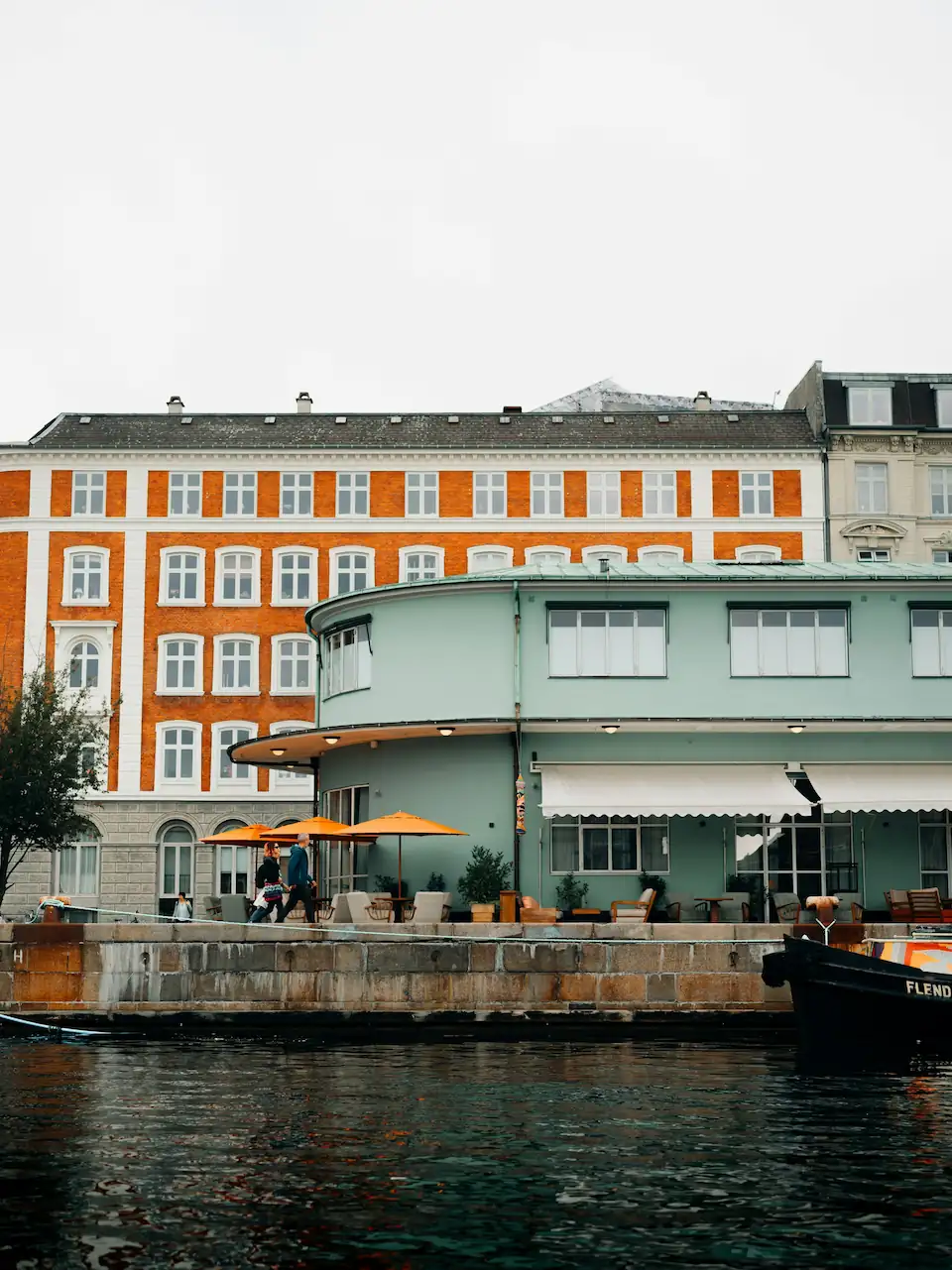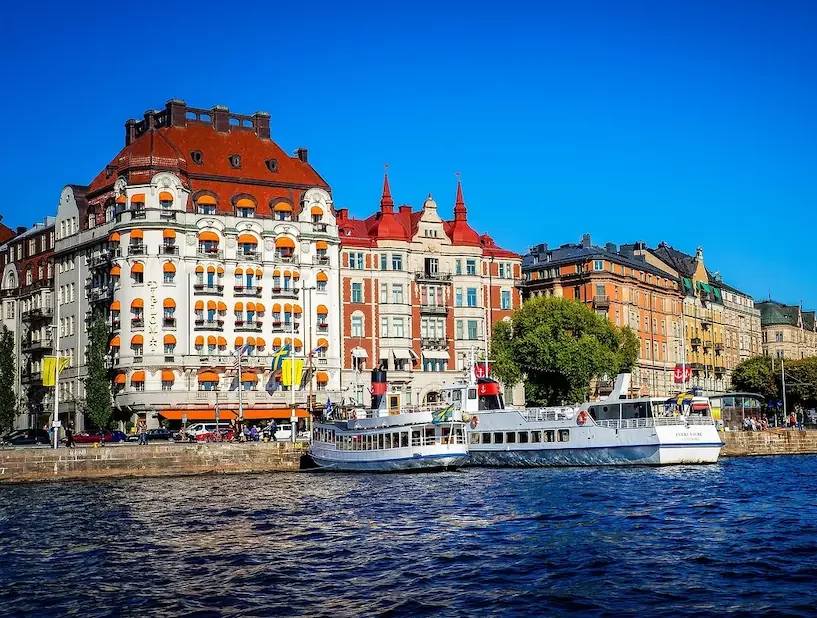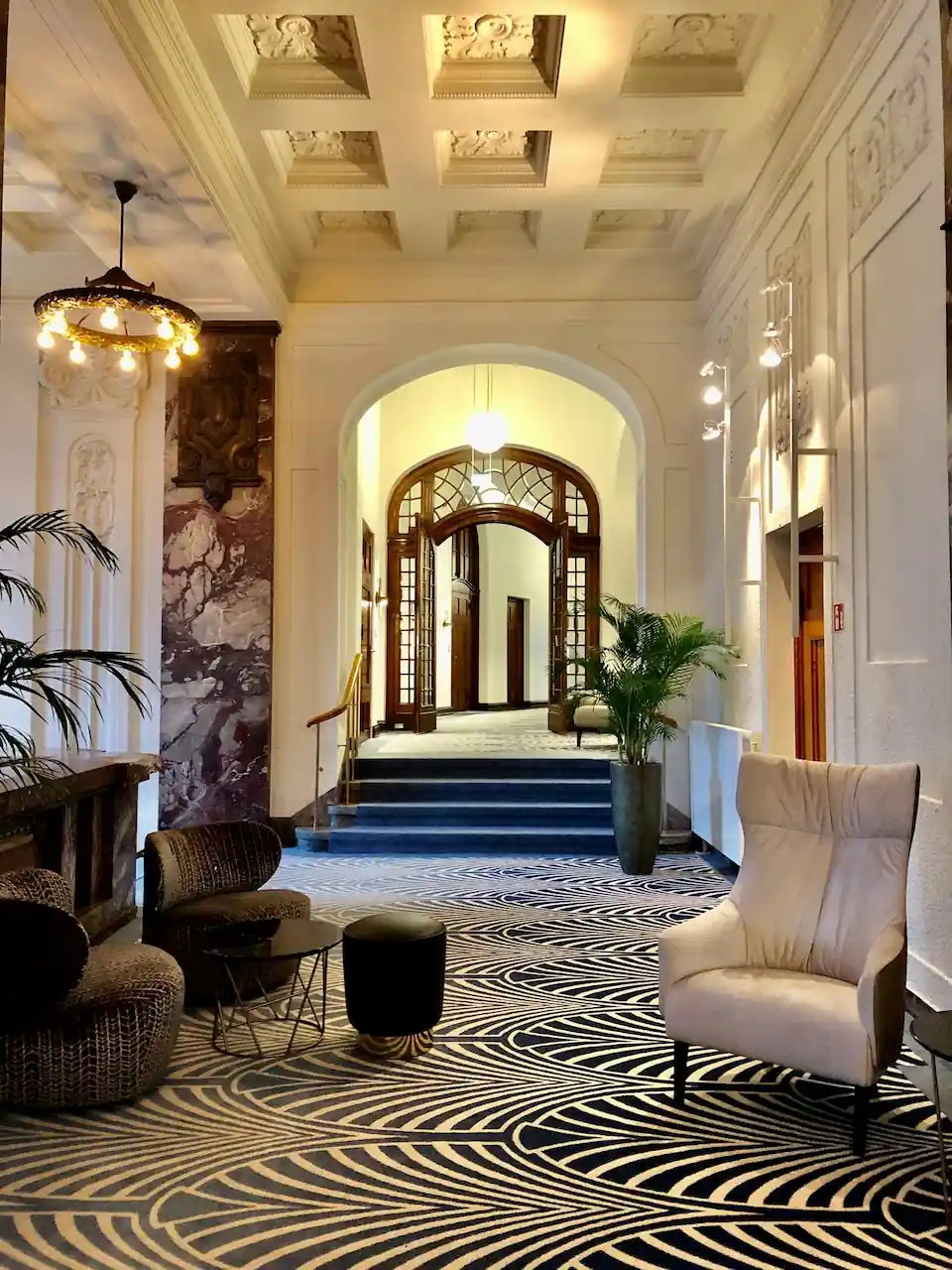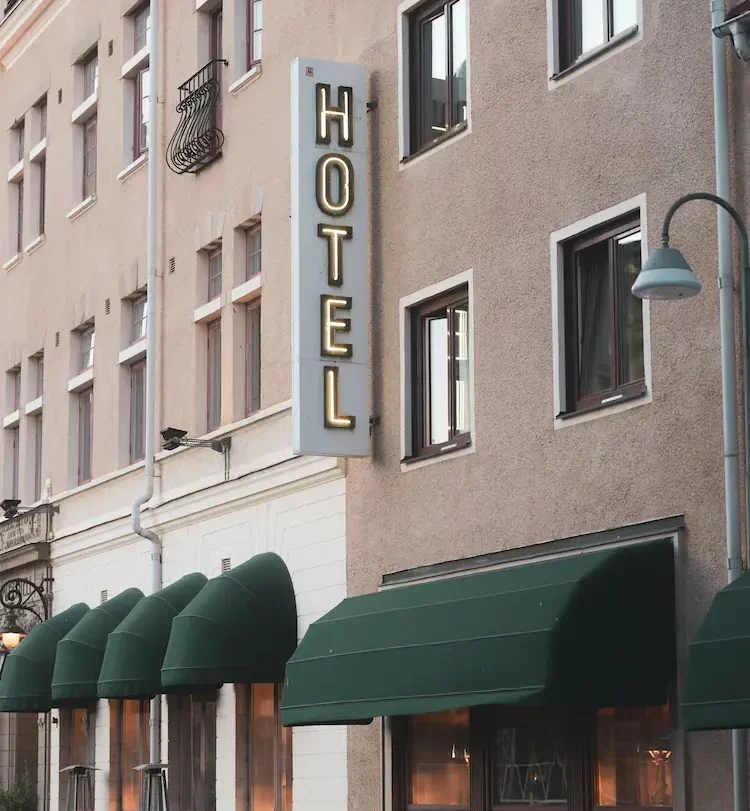Introduction
In 2025, hotels face a truth: pen and paper no longer work. A small misbooking can set off a chain reaction of problems - from dissatisfied guests to lost revenue.
A receptionist spends an average of four hours a day on basic tasks such as check-ins and room allocations. That's 1,460 hours a year spent on tasks that can be largely automated with a modern PMS system.
But what really matters is this: over 80% of hotels using modern Property Management Systems (PMS) report higher efficiency, according to a study by Hotel Operations https://hoteloperations.com/hotel-technology-survey/. It's not just about saving time - it's about giving guests what they want, when they want it.
The benefits of a PMS extend far beyond simple automation. A modern PMS that manages guest data efficiently can remember that a specific guest prefers extra pillows and a room far from the lift. When the same guest books again, everything is prepared even before they have time to ask. That's the kind of service that builds loyalty.
Hotel managers can be reluctant to introduce new systems due to fears of complexity and customisation for staff. However, hotels that implement modern PMS solutions experience significant improvements in operations. For example, a mid-sized hotel implementing a cloud-based PMS can see a 25% reduction in booking errors and a 15% increase in staff efficiency. This shows that modern PMS solutions can streamline operations, reduce errors and improve overall efficiency.
We'll walk you through exactly how a PMS can transform hotel operations, increase revenue and improve guest satisfaction. No complex technical terms - just clear, proven steps that work for hotels of all sizes.
What is a Property Management System (PMS) for hotels?
- Manage bookings, check-ins, check-outs and invoicing.
- Integrate technology to improve the guest experience.
- Cloud-based systems offer real-time updates for efficiency.
Definition and core purpose
A Property Management System (PMS) serves as the backbone of a hotel's daily operations. This software manages key functions such as bookings, check-ins, check-outs and billing. Imagine a hotel without a centralised system - chaos would quickly ensue. PMS systems make sure everything is connected and running smoothly.
These systems enable a seamless guest experience. From the moment a guest books a room to the final payment, a modern PMS tracks every detail. An efficient PMS means fewer errors, leading to happier guests and a better reputation for the hotel.
Common misconception: Some people think that PMS is only for big hotels. Even small hotels, smaller B&Bs and campsites almost always use a PMS. By reducing the workload for staff, even smaller businesses can focus more on delivering a first-class guest experience.
How can you benefit from a PMS?
- Evaluate how your current system handles daily tasks.
- Identify areas where automation can replace manual processes.
- Explore how real-time updates can improve your service.
Example of how a PMS is used in practice
Self-service kiosks have revolutionised how guests interact with hotels. This technology, often (but not always) driven by a PMS, allows guests to check themselves in and out. It reduces waiting times and increases guest satisfaction. Introducing kiosks gives guests control over their own experience.
Another example is two-way integrated booking channels. These channels are automatically synchronised with the PMS, preventing overbooking - a common challenge in the hospitality industry. Many hotels have successfully eliminated overbooking problems through such integrations.
Modern Property Management Systems (PMS) facilitate communication by providing staff with real-time updates on room status and guest enquiries. Modular Visit a communication sphere module that streamlines guest communication. The platform enables automated and personalised communication with guests before, during and after their stay, improving the guest experience and reducing staff workload.
For those who want to hear more about technology integration in the hospitality industry, the podcast The Hospitality Daily.
Types of PMS systems
On-premises PMS
On-premises PMS requires a significant investment in hardware. All data and operations are managed locally on the hotels' own servers. This system is suited to hotels in areas with unreliable internet access. One example is remote resorts where the technology must operate completely independently.
One drawback is the maintenance costs. Hotels have to manage their servers themselves, which requires qualified IT staff. Costs can be high, but reliable offline functionality is crucial for some businesses.
This older model may seem outdated, but it is still relevant in some niche contexts.
Cloud-based PMS
Cloud-based PMS systems are becoming increasingly popular. They only require an internet connection, which reduces costs as physical servers are not needed. Updates are done automatically.
The biggest advantage is scalability. As a hotel grows, the system can be easily adapted. Some may worry about security, but modern encryption and security protocols minimise these risks.
Instances when a guest interacts with the Modular Visits platform
- The guest searches for accommodation and finds the hotel's website using the Modular Visit booking engine (WBE) or via a booking channel where the hotel is listed through the Modular Visit channel manager.
- The guest makes their booking online.
- The booking is automatically recorded in the Modular Visits Property Management System (PMS), ensuring that all information is centralised and up-to-date.
- Guests receive automated, personalised messages with information about their upcoming stay, including offers for upgrades or extra services.
- The guest uses the digital check-in function to check in online, reducing the need for physical contact on arrival.
- Alternatively, the guest is checked in by the reception staff.
- The guest uses the guest portal to:
- Order room service or other services.
- Change your booking.
- Communicate with the hotel staff.
- Get information about hotel facilities and local attractions.
- The guest manages payments for their stay and any additional services through the integrated payment solution in the platform.
- The guest completes a seamless digital check-out via the guest portal, streamlining the process and saving time.
- The guest receives automated messages thanking them for their visit and encouraging feedback or reviews.
- Guests may be offered special offers or loyalty programmes for future bookings.
Benefits of using PMS for hotel business automation
- Automates tasks and reduces errors in hotel management.
- Improving guest experiences through personalised services.
- Integrates with third-party software for smoother operation.
1. rationalisation of hotel operations
Automating hotel operations with a Property Management System (PMS) significantly improves efficiency. A PMS manages tasks such as room allocation and cleaning schedules. This automation ensures that rooms are ready in time for new arrivals, reducing stress for staff and minimising human error. By using a digital system, hotels can avoid mistakes that often occur with manual data entry, leading to fewer guest complaints and increased satisfaction.
The strength of a PMS in streamlining operations lies in its ability to integrate different aspects of hotel management into a single platform. Instead of manually updating each system at the time of a booking or a cleaning, a well-designed PMS automatically updates all relevant systems. In the case of Modular Visit, our complete system - from PMS to WBE, POS and guest portal - is built as a unified platform. This means that all data has a single source of truth and is always updated instantly everywhere.
Guests today have higher expectations. Let us show you how we can take your business to the next level.
2. improved guest experience through PMS
Being able to offer personalised services is another great advantage of a PMS. Guests appreciate it when a hotel knows their needs even before they arrive. The system can store preferences such as room type, preferred amenities or special requests like extra pillows. With instant access to this information, hotels can consistently deliver personalised services without relying on staff memory or scattered notes.
Furthermore, a PMS can automate communication with guests throughout their stay. Early check-in emails or post-departure follow-ups can make the experience smoother. Personalised communication in the hospitality industry has been shown to significantly strengthen customer loyalty.
3. PMS integration with hotel services
A crucial feature of modern PMS platforms is their compatibility with third-party services such as OTAs (online booking engines) and reservation systems. This integration allows hotels to offer real-time updates and seamless operations - something that today's guests expect. PMS can be synchronised with popular travel agencies and booking sites to ensure that guests receive up-to-date information on availability and prices.
When talking about integration, it is important to understand the technical infrastructure behind these systems. Application Programming Interfaces (APIs) are often used to connect different software platforms. These interfaces create a networked ecosystem that keeps hotel operations running smoothly and efficiently.
A survey conducted by Skift found that 65 % of hoteliers consider the ability to integrate with other systems to be the most important feature of a cloud-based hotel management system. This highlights the growing preference for cloud-based PMS solutions due to their integration capabilities.
See how you can take your business to the next level with the Modular Visits platform. The platform is specifically designed to easily integrate with other systems.
4. Improved data management and analysis
PMS platforms centralise guest data, providing better insights and enabling more effective marketing strategies. By having comprehensive data available, hotels can segment their target audience for targeted campaigns. Understanding guest behaviour and preferences makes it possible to create special offers that appeal to specific target groups, such as family packages or romantic weekend breaks for couples.
Effective data management not only improves marketing but also supports key decision-making processes. Reliable data leads to more informed pricing strategies, better inventory management and improved service. Studies show that companies using big data can improve productivity by about 4% and increase profits by about 6 %. Read more about the impact of data analytics on revenue here.
How does a PMS work?
- Fast synchronisation of room availability with online travel agencies.
- Real-time updates for cleaning and reception workflows.
- Smooth invoicing and secure financial transactions.
Centralised booking management
Modern cloud-based Property Management Systems (PMS) improve booking management by synchronising with online travel agencies (OTAs), ensuring that room inventory is updated seamlessly in real time. This synchronisation allows availability to be automatically adjusted across all platforms, preventing issues such as double bookings and minimising guest frustration. For hotels, it means easier management of room allocation, without the need for manual adjustments.
The process reduces administrative work and enables dynamic pricing strategies. Hotels can adjust prices based on current demand and thus increase their profitability. Some critics argue that reliance on OTAs increases costs, but the streamlined process compensates for this through higher revenue potential. Read more about Modular visits booking system for hotels here.
Operations and staff management
A PMS system modernises staff management through improved task allocation. It updates cleaning and reception tasks based on current occupancy, ensuring smooth workflows. This automation reduces the risk of human error and improves service delivery. The system manages staff in real time, adjusting schedules in line with check-ins, check-outs and room changes.
This increases the rate of task completion, while at the same time making more efficient use of human resources, contributing to an overall improvement in operational efficiency.
Modular Visit's platform streamlines staff workflows through task automation. The system can automatically generate tasks based on specific events. For example:
- If a guest books an extra bed, the cleaning staff is immediately tasked with placing it in the room.
- Additional services and upselling: when a guest orders additional services such as flowers or champagne in the room, the relevant details are automatically assigned to the staff responsible for preparing for the guest's arrival.
- Recurring tasks can be created automatically. For example, smoke alarms should be checked monthly or the lawn should be mowed weekly.
Tasks can also be marked as urgent to signal priority to the recipient.
Invoicing and financial transactions
Modern PMS systems integrated with a Revenue Management System (RMS) simplify invoicing by automatically calculating room rates based on booking details and market conditions. By generating invoices and integrating secure payment systems, transactions are faster and more accurate. This financial coordination reduces the need for manual data entry at the front desk, freeing up staff time to focus on customer service.
Improved billing efficiency leads to faster check-out processes, reducing guest waiting times. Proper financial integration also minimises errors, contributing to accurate financial reporting and regulatory compliance. Critics may argue that PMS systems can be complex to set up, but their ability to streamline financial processes quickly overcomes these objections.
How to choose the right PMS for your hotel
- Evaluate your hotel's needs and the features required.
- Analyse key PMS features and their ease of use.
- Consider your budget and the scalability of the PMS system.
Step #1: Identify your hotel's needs
First of all, it is important to understand what your hotel really needs. Start by listing the most important features. Do you want to automate bookings, manage room inventory, or streamline the check-in and check-out process? Needs can vary between hotels, and identifying these needs will help you choose a system that suits your business.
Also think about how the new PMS will integrate with existing systems. Or whether the PMS you choose will replace several of your existing systems. Does it need to be linked to your current booking engine or CRM or can it replace them? Seamless integration is crucial to optimise your business. Make sure the potential systems offer compatibility to avoid system conflicts and maximise functionality. In Modular Visit's system, we offer a wide range of functionalities in a unified platform, often replacing several systems at once.
Step #2: Evaluate PMS features
The next step is to review the specific features that PMS systems offer. A user-friendly interface is crucial. Staff shouldn't have to struggle with the system during busy shifts. Customisable features are also important, as they allow the system to be tailored to the specific needs of the hotel.
Robust customer support is a key factor. Check if the provider offers round-the-clock support. Onboarding resources such as instructional videos and detailed guides are also valuable to ensure that staff quickly learn the system. A fast learning curve increases staff confidence and reduces the risk of operational errors.
Including screen shots of different PMS interfaces can give a visual idea of ease of use. It helps to compare how different systems present their dashboards and features.
Modular Visit has taken both of these factors into account:
- We offer 24/7 support for all our customers.
- Our platform is developed with a focus on user-friendliness. We even dare to say that we have the most intuitive PMS system on the market.
Step #3: Consider budget and scalability
Budget is always an important factor. Evaluate the pricing model carefully. PMS is often priced on a monthly billing basis, but there are many different ways to price. Monthly fixed cost, cost per user in the system. Percentage cost on turnover in the system. Other pricing or combinations of all variants.
Don't forget scalability. Your hotel may grow, or you may want to add new services. The PMS system should support this growth without requiring a complete reorganisation. Make sure it can handle an increased number of rooms, guests and services in a smooth way. If necessary, also see if the system supports multi-property i.e. managing several different hotels in the same system.
Budgeting calculation
Create a simple budget calculator to compare costs between different PMS options. This tool can clarify the long-term financial implications and help you make an informed decision.
Step #4: Test system compatibility and performance
Once you have narrowed down the selection, test the compatibility and performance of the systems. Many vendors offer free trial periods, which can be valuable. Take advantage of this period to evaluate the system's performance under real-world conditions. Check loading times and how well the system integrates with your other systems.
Collect feedback from your staff after the trial period. They are the actual end users, and their views on the usability of the system are crucial. Their input will help determine whether the system really meets the business requirements without causing frustration or mistakes.
Step #5: Ensure security features and compliance
Hotel guests expect their data to be handled securely. Evaluate the security measures that the PMS system has in place. Look for systems with established encryption protocols to protect sensitive information. Compliance with data protection regulations, such as the GDPR, is non-negotiable.
Discuss with the provider about regular security updates and how quickly they address vulnerabilities. A secure system builds trust with guests, which is central to maintaining the hotel's reputation.
Step #6: Read reviews and case studies
Finally, learn from the experiences of others. Read reviews from other hotels, especially those that are similar in size or range. Look for case studies or success stories in industry reports. These insights may reveal hidden strengths or weaknesses in the schemes you are considering.
Look for reviews on long-term customer support and system reliability. These will give you a more realistic picture of what to expect after you have implemented the system.
Links to resources
For a deeper understanding of the best systems for hotels, compare leading solutions. This comparative analysis provides insights into key PMS features and how they match the needs of different hotels.
By following these steps, you'll create a solid foundation for making an informed decision about which PMS system is best for your hotel. Each step will ensure that you don't overlook important factors that could affect long-term operations.
What is the best PMS system for hotels?
Evaluate how the system matches your business objectives
A good PMS system should be customised to your hotel's specific objectives. Without this customisation, even the best system may fail to deliver the desired results. Take into account your hotel's size, target market and unique services. If your goal is to increase occupancy during the off-season, the system should have powerful analytics and marketing tools. If your focus is on a luxury guest experience, look for personalisation features.
Choose the system that meets most of your business objectives to maximise efficiency and customer satisfaction. Learn more about PMS system features at Modular Visit.
Conclusion
The evolution of hotel management through PMS has transformed daily operations and guest expectations are always increasing as more and more hotels implement more modern systems. Hotels can now manage tasks with a speed and precision that was previously impossible. From smoother check-ins to data-driven decisions, a PMS brings clear benefits to hotels of all sizes.
The benefits of using a PMS in the hospitality industry extend beyond basic operations. Staff can focus on what really matters - providing guests with great service - while the system handles routine tasks. This leads to happier guests and more profitable hotels.
For hotels embarking on their PMS journey, the path is clear: identify your needs, choose the right features and ensure the system can grow with your business. Remember, the best PMS is not always the most expensive or the most feature-rich - it's the system that best suits your hotel's needs.
PMS systems will constantly continue to evolve with new features and capabilities. Hotels that implement these systems now are positioning themselves to provide better service and stay ahead of guest expectations. The question is not whether to implement a PMS - but which system will best support your hotel's growth and success.







